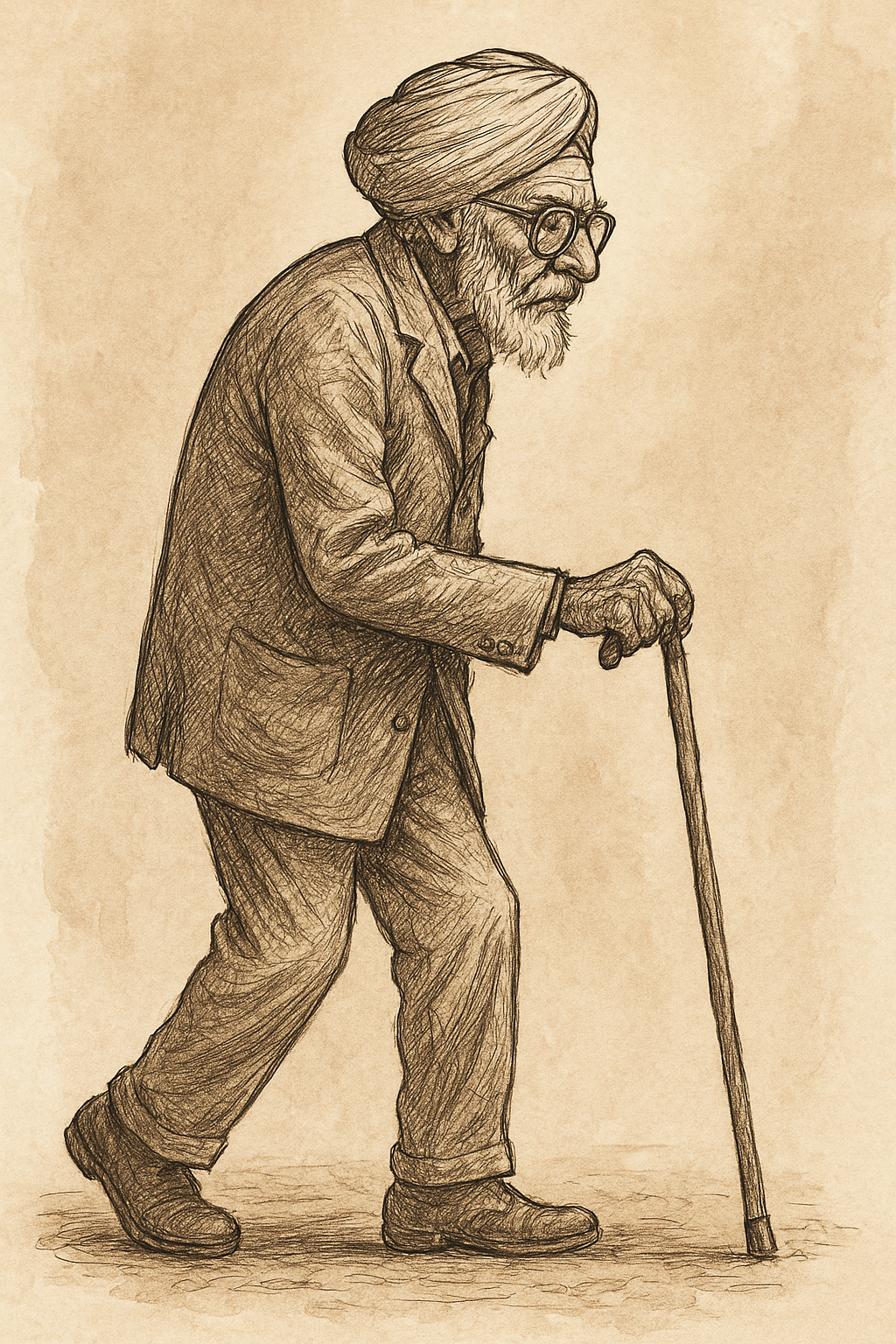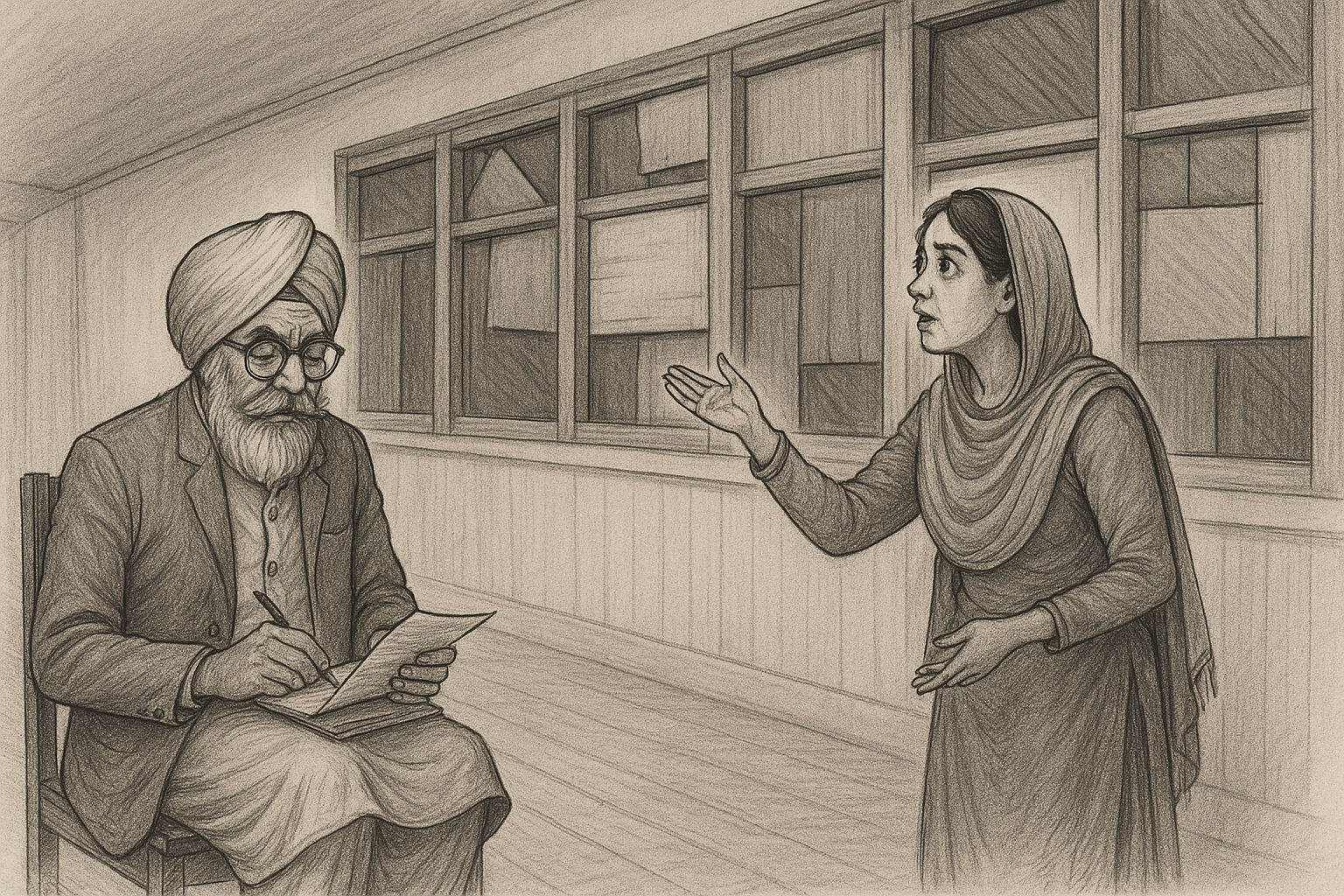Sardar Kartar Singh Duggal: The Reluctant Collector
Sardar Kartar Singh Duggal, the owner of the cottage, was an octogenarian, perhaps even a nonagenarian. With his thick bottle-glass spectacles and deeply lined face, he embodied the steadfastness of an era gone by. As the landlord, he held fast to his principles—chief among them, an unwavering refusal to replace broken windowpanes in his tenanted houses.

His tenants, for their part, had principles too—namely, deducting amounts for ‘necessary’ repairs from the rent. Sardar Kartar Singh wore thick glasses, magnifying his deep-set eyes and countless wrinkles—etched over what seemed like a century of life. Strands of his beard dangled like creepers, as if telling stories of their own.
“When we moved in,” I remember my mother saying, “the rent charged from the previous tenant was twelve rupees and eleven annas.”
“Your father raised it to thirteen rupees,” she added. “That was his way of showing kindness to the landlord.”
This five-anna increase coincided with the introduction of decimal currency in 1957—when a rupee, once divided into sixteen annas, began its new journey into modern accounting. But such gestures, small as they seem, reflected a time when generosity spoke louder than inflation.
Despite his age, Sardar Duggal made the steep journey from Ladakhi Mohalla to collect rent from tenants who were seldom prompt and never paid in full. Trembling with age and disappointment, he was regularly met with long lists of deductions. His gentle protests—“Kee zaroorat si?” (What was the need?)—met with carefully measured pauses from my mother, so he could catch his breath before she added the next item.
“Veranda repair—ten rupees.”
“The bolt of the partition door—two rupees, ten annas.”
His walking stick dangled helplessly as he shook with indignation. When he tried to shake his head in disapproval, his turban would wobble dangerously. Still, his soft "No" carried no weight—except perhaps in his heart.

My mother, ever compassionate, would guide him to a chair, offer him water (never tea—he always refused). After listening to the litany of repairs, he would pull out a tattered receipt book from his coat, swap his glasses, insert carbon paper between its pages, and write a receipt—grumbling all the while whether the deductions outweighed the cost of the revenue stamp itself.
The veranda that featured in this tale, and in many of my stories like 'Drawstring Drama', 'Callers at Night', and 'Male Strippers of Shimla', had earned those repairs honestly. It was our playground on rainy days, a hallway of adventure, echoing with childhood and cracked windowpanes now filled with cardboard.
“Sit down, respected Sardar Ji,” Mama would say in Punjabi. He would slump into the chair, the weight of age and unrecovered rent pressing down on his bones.
In a world without phones or texts, where telegrams spelled doom and the postman’s knock brought dread, these slow, strained transactions were all the communication we had. And they told us everything we needed to know about the lives of people—frail, proud, imperfect, and real.